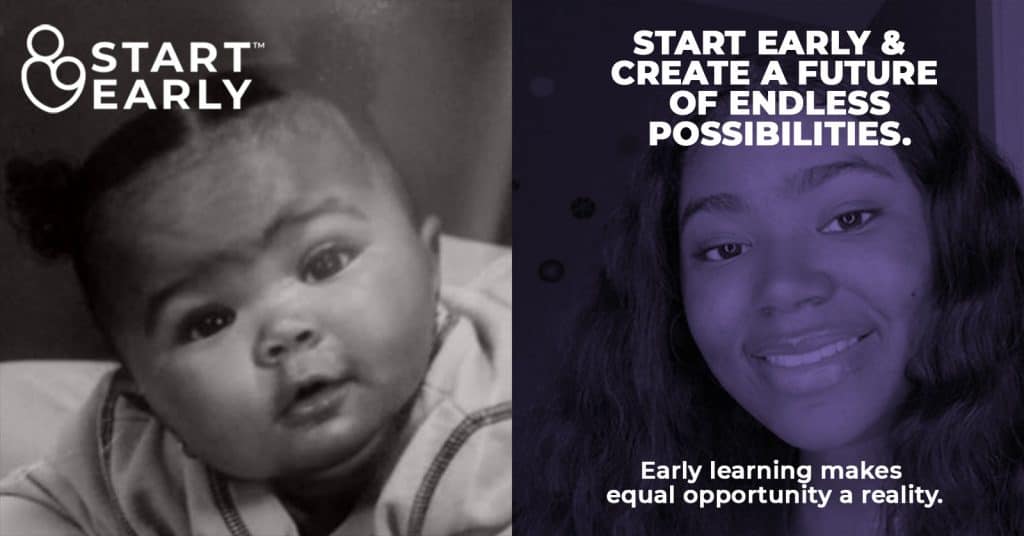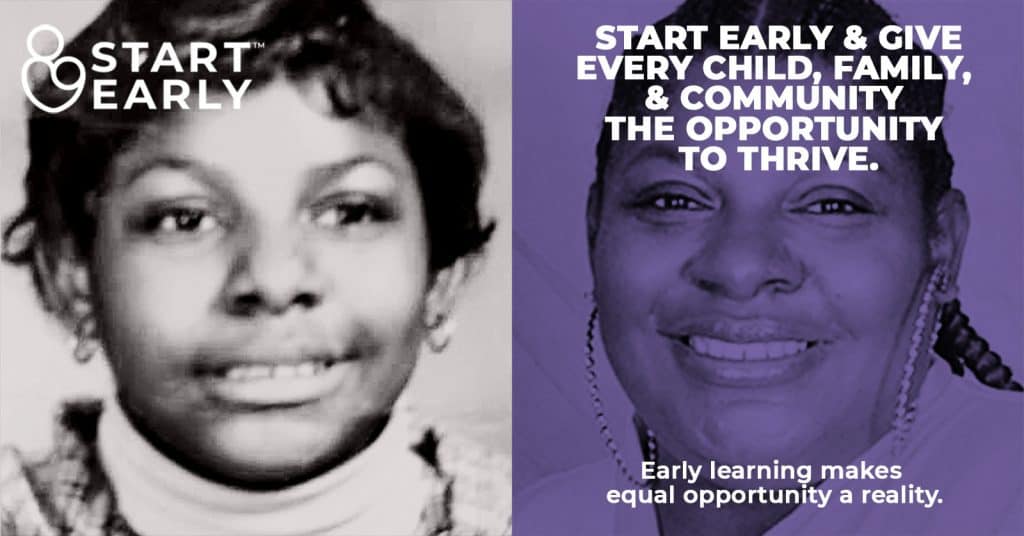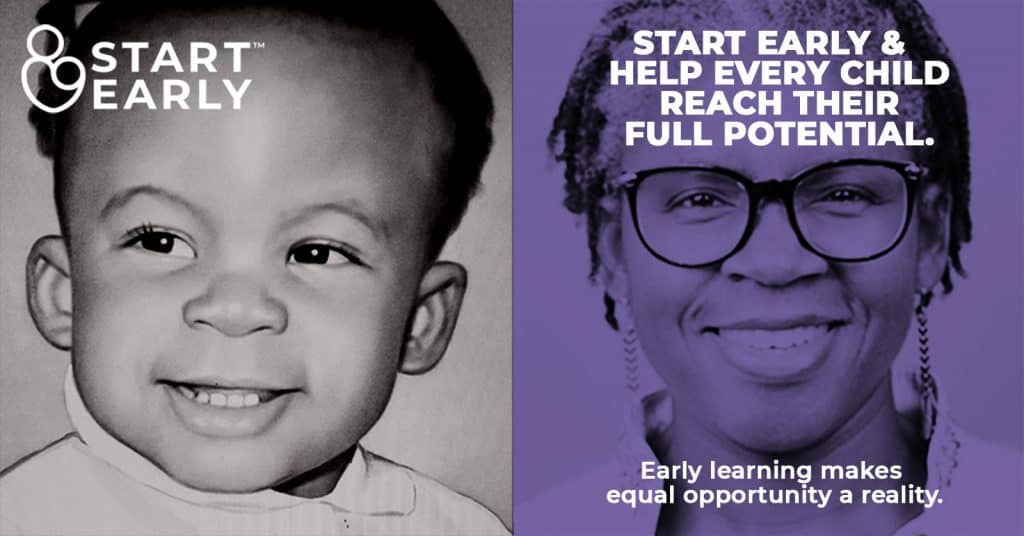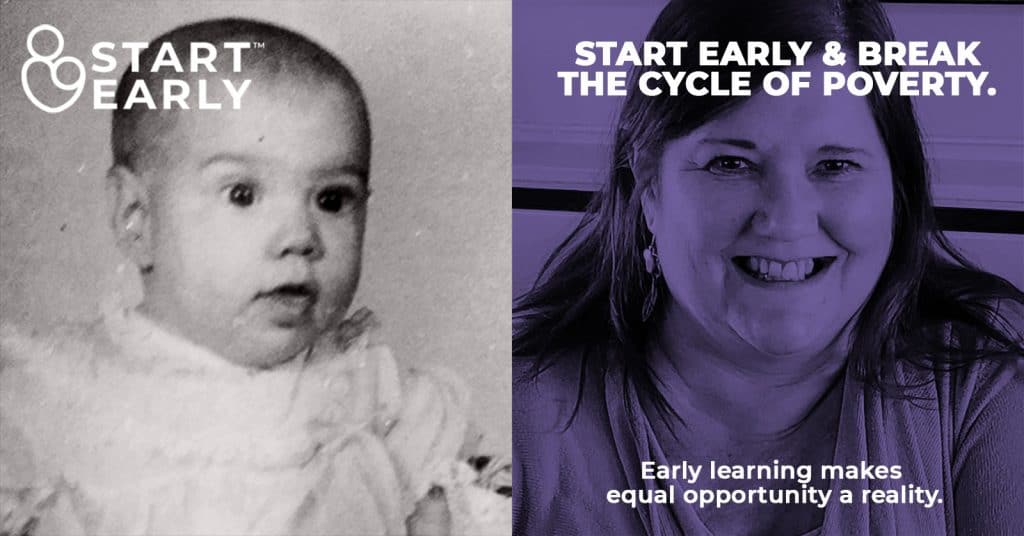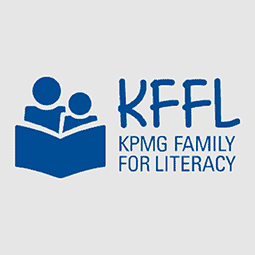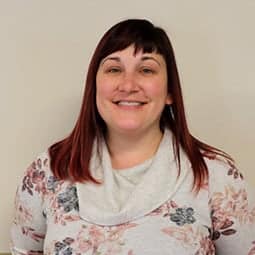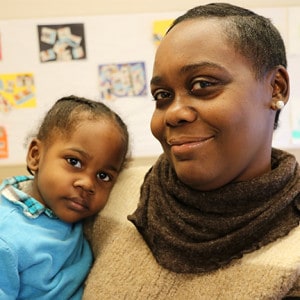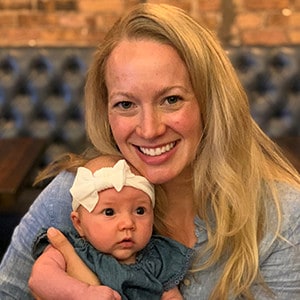Support through COVID-19 and Delivery
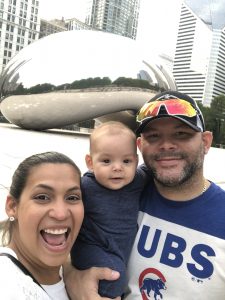 Diana says Patricia has been her main support over the past year. In the months leading up to her birth, they would talk about prenatal care, fetal development and how Diana could best advocate for herself and her child. When Illinois’ stay-at-home order was implemented in March, Patricia continued to support Diana through video chats, phone calls and text messages.
Diana says Patricia has been her main support over the past year. In the months leading up to her birth, they would talk about prenatal care, fetal development and how Diana could best advocate for herself and her child. When Illinois’ stay-at-home order was implemented in March, Patricia continued to support Diana through video chats, phone calls and text messages.
Then, just weeks before her due date, Diana and her husband each tested positive for COVID-19. She recalls crying as she called Patricia, who helped connect her with a therapist and walked her though what would happen at the hospital if she were still positive on the day of the birth. Thankfully, her symptoms were mild and she tested negative before her delivery after self-quarantining.
Due to the hospital’s COVID-19 restrictions, Diana was only allowed to have one person with her in the delivery room: her husband. But even though Patricia wasn’t physically in the room, she constantly checked in with Diana to guide her through the birthing process and ensure it was going as planned. [click to hear audio] “She was always making sure, ‘Oh, you should ask for this.’ It was like she was there,” Diana recalls.
The strong doula-parent relationship that Diana and Patricia have built has been a lifeline for Diana. [click to hear audio] “I’m alone here. My mom just passed away two months ago, and she was my guidance.” Not having her mother to talk to has been difficult, but Diana is comforted knowing her mom knew she had support here in Chicago. [click to hear audio] “Because she knew, ‘Oh no, she’s not all alone because Patricia’s there, she’s going to help her.’”
Importance of Starting Early
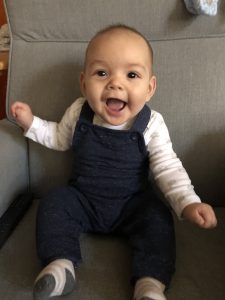 To Diana, early learning and care is important because there isn’t a parenting manual and like every parent, she wants what is best for her son. She knows the resources and supports she’s received from her doula and home visitors are laying the foundation for her son’s future success.
To Diana, early learning and care is important because there isn’t a parenting manual and like every parent, she wants what is best for her son. She knows the resources and supports she’s received from her doula and home visitors are laying the foundation for her son’s future success.
This knowledge has empowered her to take the lead in being Matteo’s advocate and best teacher. While she learned many of the basics of parenting watching her brother raise two children — like changing a diaper — she wasn’t aware of the developmental milestones for infants and toddlers or activities that helped babies reach them.
[click to hear audio] “I didn’t have any idea about the milestones and all the things that I’m learning now,” she says “But I would say that I know them now because of Patricia.”
As she looks ahead to the future, Diana has many dreams for her family. Although English will be Matteo’s first language, Diana believes it is important that he be able to speak, read and write in Spanish. She looks forward to deepening their bond by teaching him in the coming years.
In the meantime, she’s helping her son continue to meet his developmental milestone by sitting on the floor each day, talking and singing with him. [click to hear audio] “I talk to him. He’s going to be a talker, because of me,” she says proudly.

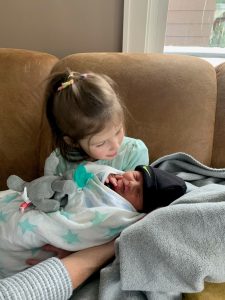 The birth of a new family member can be both an exciting and overwhelming time, even before the unique circumstances created by the global pandemic. Laura immediately found her phone conversations, text messages and virtual home visits helpful.
The birth of a new family member can be both an exciting and overwhelming time, even before the unique circumstances created by the global pandemic. Laura immediately found her phone conversations, text messages and virtual home visits helpful.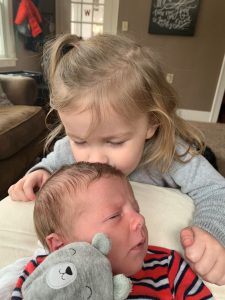 “After being pregnant for so long and caring for others, I felt seen, loved and cared for,” she remembers. “When we didn’t have family support, the extra emotional and educational support she gave us was encouraging and helpful. Marianne fostered a caring relationship with my family and helped enhance a smoother transition with a new baby and the changing of sibling and family dynamics.”
“After being pregnant for so long and caring for others, I felt seen, loved and cared for,” she remembers. “When we didn’t have family support, the extra emotional and educational support she gave us was encouraging and helpful. Marianne fostered a caring relationship with my family and helped enhance a smoother transition with a new baby and the changing of sibling and family dynamics.”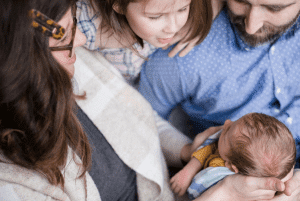 “The postpartum home care visit offers nurses the opportunity to reinforce self and infant care,” Laura explains. “The holistic care Marianne delivered helped me better adjust to the changes that Tommy brought to our family. She provided the support and encouragement that I needed, and for that I am grateful as it not only benefited me and Tommy, but my whole family.”
“The postpartum home care visit offers nurses the opportunity to reinforce self and infant care,” Laura explains. “The holistic care Marianne delivered helped me better adjust to the changes that Tommy brought to our family. She provided the support and encouragement that I needed, and for that I am grateful as it not only benefited me and Tommy, but my whole family.” Diana says Patricia has been her main support over the past year. In the months leading up to her birth, they would talk about prenatal care, fetal development and how Diana could best advocate for herself and her child. When Illinois’ stay-at-home order was implemented in March, Patricia continued to support Diana through video chats, phone calls and text messages.
Diana says Patricia has been her main support over the past year. In the months leading up to her birth, they would talk about prenatal care, fetal development and how Diana could best advocate for herself and her child. When Illinois’ stay-at-home order was implemented in March, Patricia continued to support Diana through video chats, phone calls and text messages. To Diana, early learning and care is important because there isn’t a parenting manual and like every parent, she wants what is best for her son. She knows the resources and supports she’s received from her doula and home visitors are laying the foundation for her son’s future success.
To Diana, early learning and care is important because there isn’t a parenting manual and like every parent, she wants what is best for her son. She knows the resources and supports she’s received from her doula and home visitors are laying the foundation for her son’s future success.